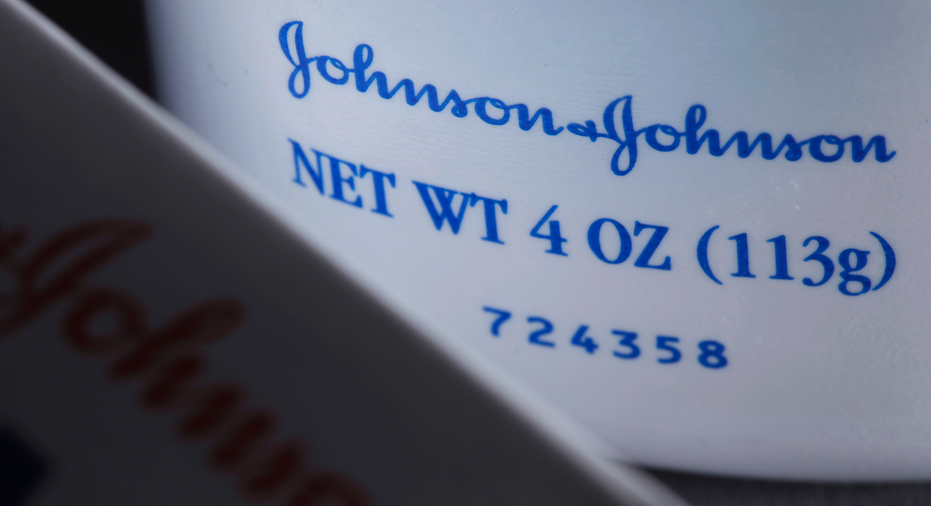Johnson & Johnson beats revenue, profit projections for 2Q

NEW BRUNSWICK, N.J. – Fueled by a 20 percent sales jump in its prescription drugs business, Johnson & Johnson posted a 3 percent increase in second-quarter profit.
Still, the world's biggest maker of health care products trimmed its forecast for 2018.
J&J's prescription medicine business, which had lagged its medical device business until a couple years ago, accounted for half its $20.83 billion in total revenue.
That business has prospered from wider use of its cancer and immune disorder medicines and its $30 billion acquisition of Swiss drugmaker Actelion last year. That deal brought J&J Opsumit and other drugs for high blood pressure in the lungs, a business that could hit $2.5 billion in sales this year.
The New Brunswick, New Jersey, company on Tuesday reported net income of $3.95 billion, or $1.45 per share, up from $3.83 billion, or $1.40 per share, a year ago.
Adjusted for one-time gains and costs, earnings came to $2.10 per share, or 4 cents better than Wall Street had expected, according to a survey by Zacks Investment Research.
The $20.83 billion in revenue, up from $18.84 billion in the year-ago quarter, also topped analyst expectations for $20.21 billion.
The results come on the heels of a $4.69 billion jury verdict against J&J last Thursday in a 22-plaintiff lawsuit alleging its iconic Johnson's baby powder contained asbestos and caused their ovarian cancer. J&J plans to appeal that verdict and is fighting about 9,100 lawsuits alleging that talc in its baby powder and Shower to Shower caused ovarian cancer or mesothelioma, despite significant evidence that talc, an inert element, is safe.
Prescription drug revenue totaled $10.35 billion, while medical devices and diagnostics products brought in $6.97 billion, up 3.7 percent. That segment is now entering the third year of a restructuring program that's included several divestitures.
Sales of the immune disorder drug Stelara, used to treat psoriasis and Crohn's disease, jumped 36 percent, to $1.34 billion. That made it J&J's top earner, toppling longtime best seller Remicade, for rheumatoid arthritis and five other immune disorders. Remicade's revenue dropped nearly 14 percent, to $1.32 billion, as cheaper "biosimilar" near-copies of the expensive injected biologic drug increasingly erode its sales.
Meanwhile, three of J&J's cancer drugs — Darzalex and Velcade for multiple myeloma, and Zytiga for prostate cancer — saw sales skyrocket, each rising between 37 percent and 71 percent. Fueled by approvals for additional uses or patient groups, J&J's oncology medicines are now on pace to bring in nearly $10 billion this year.
However, J&J's diabetes drug Invokana posted a 27 percent revenue plunge, to $216 million, amid pressure from insurers for lower prices in that fiercely competitive category.
Consumer health products such as Band-Aids and Neutrogena skin care products saw sales edge up 0.7 percent, to $3.5 billion. Sales rose 6 percent to $1.07 billion for nonprescription drugs such as Tylenol pain reliever and Benadryl allergy pills, but sales of baby care items such as No More Tears shampoo dropped nearly 8 percent to $494 million. J&J is launching a new promotional campaign for that business.
Johnson & Johnson said it now expects full-year earnings between $8.07 and $8.17 per share, down a bit from its April forecast for $8 to $8.20 per share. It now anticipates revenue between $80.5 billion and $81.3 billion, down from its prior forecast of $81 billion to $81.8 billion.
Analysts are expecting $81.2 billion in sales and earnings per share of $8.10, on average.
In premarket trading, shares rose slightly.
_____
Elements of this story were generated by Automated Insights using data from Zacks Investment Research.



















